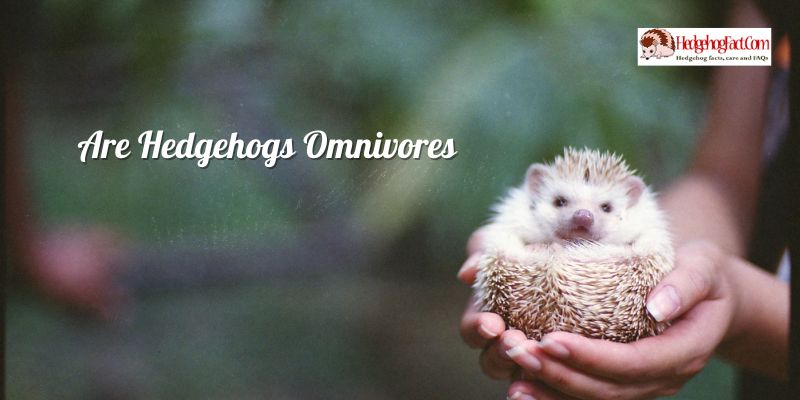Are you considering getting an African Pygmy Hedgehog as a pet? These adorable little creatures are quickly becoming a popular choice for pet lovers around the world. However, before bringing one of these cute little critters home, there are a few things you should know. In this article, African Pygmy Hedgehog: Everything You Need To Know, we’ll cover everything you need to know about African Pygmy Hedgehogs, from their diet and housing needs to their lifespan and where to find them.
Diet of African Pygmy Hedgehog
The African Pygmy Hedgehog is an insectivorous animal, which means that its diet primarily consists of insects. In the wild, they eat a variety of insects, such as crickets, mealworms, and waxworms.
When kept as pets, the diet of African Pygmy Hedgehogs can be supplemented with commercial hedgehog food, which is specially formulated to provide them with the necessary nutrients. This food usually contains a mixture of protein, fat, fiber, and vitamins and minerals.

It is also recommended to supplement their diet with fresh fruits and vegetables, such as carrots, apples, and leafy greens, as well as small amounts of cooked chicken or boiled egg. However, it is important to avoid giving them sugary or high-fat foods, as these can cause health problems such as obesity and dental issues.
It is essential to provide fresh water to African Pygmy Hedgehogs at all times, preferably through a water bottle or a shallow dish, as they can easily spill water bowls and get wet, which can be harmful to their health.
Housing of African Pygmy Hedgehog
It’s critical to give an African Pygmy Hedgehog a secure, accommodating home that satisfies their needs when it comes to housing. Considerations for housing an African Pygmy Hedgehog include the following:
Size: A minimum of 2 square feet should be allotted for the enclosure, though larger is generally preferable. The hedgehog will have adequate room as a result to walk around, exercise, and play.
Substrate: To create a cozy and hygienic living space, the enclosure should have a soft and absorbent substrate, including paper-based bedding or aspen shavings. As they can lead to respiratory issues, stay away from using cedar or pine shavings.

The ideal temperature range for the African Pygmy Hedgehog’s enclosure is between 72 and 80 degrees Fahrenheit because of their sensitivity to temperature. The temperature can be maintained with the aid of a heat lamp or heating pad.
Hedgehogs want to have a safe haven to hide in, so give them a few places to do so, such as a tunnel or a hide box.
Hedgehogs are busy creatures who require stimulus to avoid boredom. Giving kids toys and things to play with, such wheels, balls, and tunnels, can keep them occupied.
Cleaning: The enclosure needs to be spot cleaned every day, and once a week it needs to be thoroughly cleaned and disinfected.
Because they are nocturnal creatures, African Pygmy Hedgehogs are most active at night. They’ll feel more at ease and have better sleep cycles if you provide them a quiet, dark atmosphere during the day.
Cost of African Pygmy Hedgehog
A number of variables, such as the breeder or pet shop, the area, and the age of the hedgehog, might affect the price of an African Pygmy Hedgehog. An African Pygmy Hedgehog will often run you between $100 and $250. Other elements that could affect an African Pygmy Hedgehog’s price include the following:
Breeder or pet store? Breeders could charge more for hedgehogs with particular features or ancestry. Prices in pet stores could also be higher as a result of extra expenses like shipping and handling.
Age: Since they need more care and attention, baby hedgehogs, also known as hoglets, are frequently more expensive than adults.
Male and female hedgehogs may cost differently, with females frequently costing more because they can reproduce.
A hedgehog’s accessories, which may incur additional costs, include a cage, bedding, food and water dishes, toys, and other supplies.
The continuous expenses of having an African Pygmy Hedgehog, including as food, bedding, veterinarian care, and other supplies, should also be taken into account. To guarantee that you can give your hedgehog the right care throughout its existence, it is advised to put a budget in place.
Lifespan
The African Pygmy Hedgehog has a lifespan of about 4 to 6 years in the wild, but with the right care and attention, it can live up to 8 years or longer in captivity.
The longevity of an African Pygmy Hedgehog can be affected by a number of variables, including genetics, diet, environment, and medical care. Here are some suggestions to help your pet hedgehog have a longer life:
Diet: Your hedgehog’s overall health and lifespan depend on a balanced diet that fits its nutritional demands. It is advised to follow a diet that is strong in protein and moderate in fat, with occasional treats of fresh produce.

Exercise: Playtime and exercise can keep your hedgehog active and healthy on a regular basis. Offering playthings, a wheel, or a playpen can promote movement and exploration.
Keeping a clean and cozy habitat for your hedgehog is essential to warding off illness and disease. It is crucial to regularly clean their enclosure and give them new bedding.
Veterinarian care: To make sure your hedgehog is healthy and up to date on immunizations, regular checkups with a vet that specializes in exotic pets are advised.
Hedgehogs are gregarious creatures that profit from interaction with their owners. Overall wellbeing can be enhanced by spending time with your hedgehog, handling it gently, and giving it socialization chances.
Your African Pygmy Hedgehog can have a longer life if you give it the right care and attention.
Conclusion
Overall, African Pygmy Hedgehogs can make great pets for those who are willing to provide them with proper care, attention, and a safe and comfortable environment. Hope African Pygmy Hedgehog: Everything You Need To Know will provide information for you.





